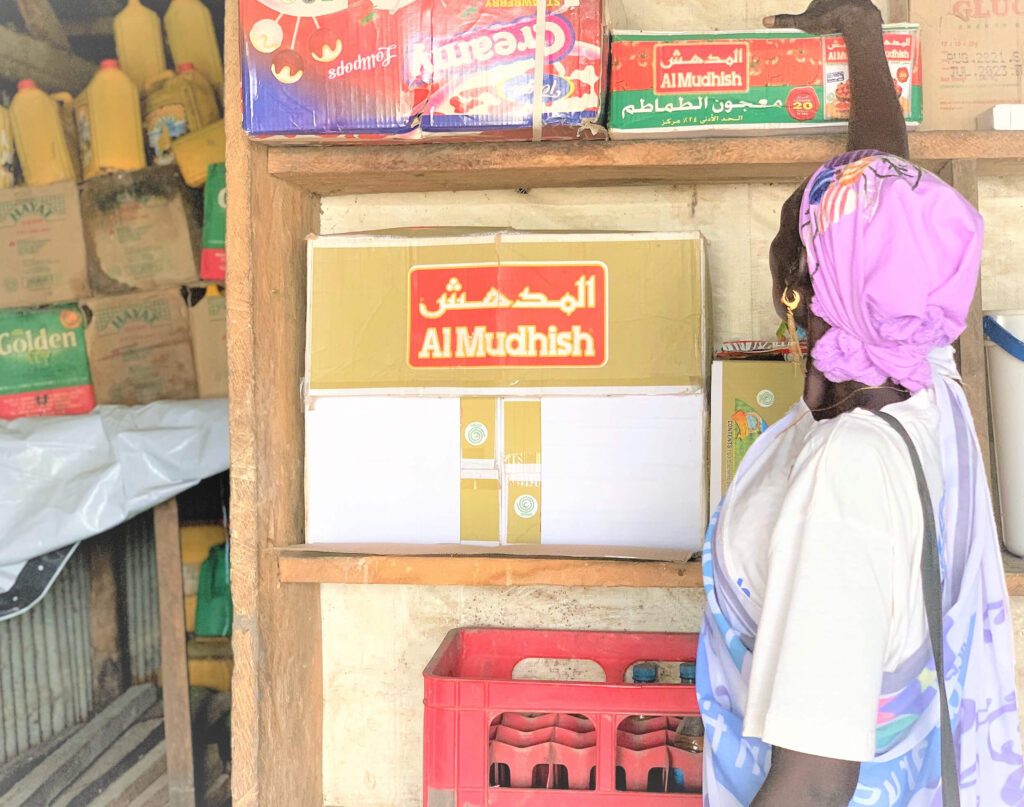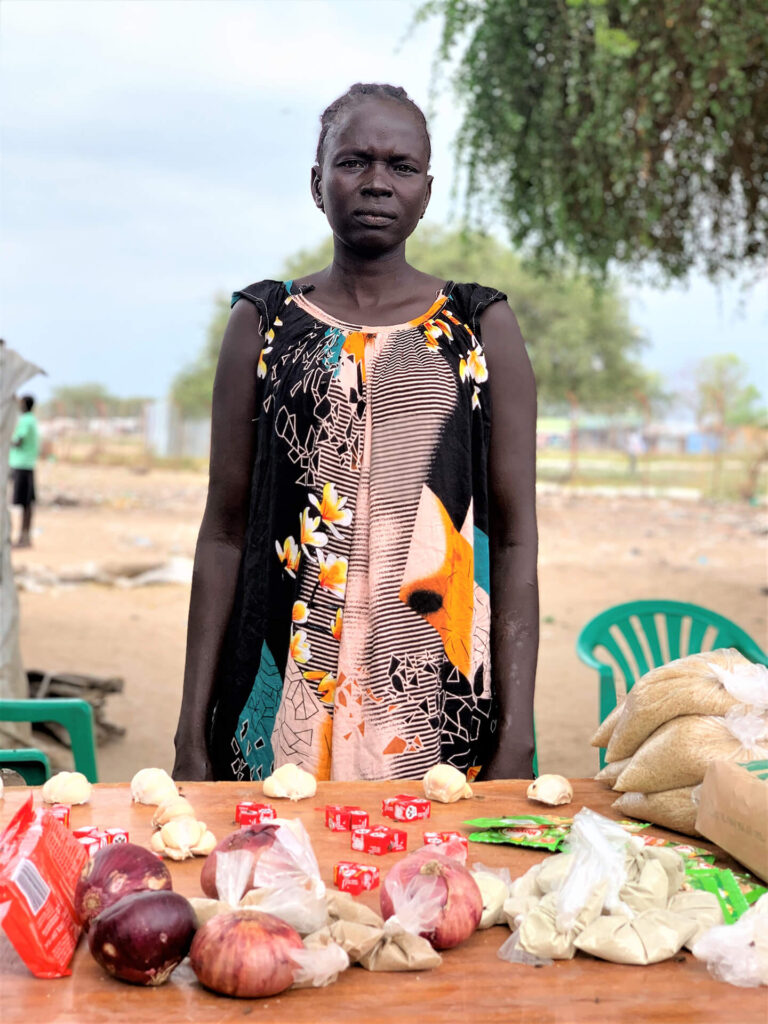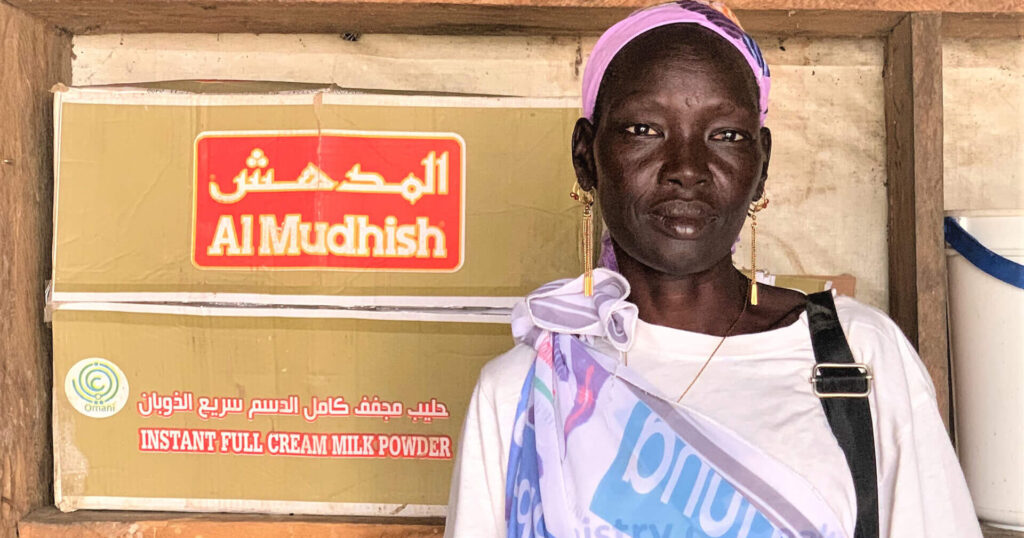It’s morning and the dry season’s chilly winds blow through the branches of the gigantic trees surrounding the open market in Panyagor county, South Sudan. Traders are setting up their stalls, and customers are navigating through the market, many looking for something to cook for their families. Across the road, elderly men are knotting ropes for farm animals while women and men sell food and other goods by the roadside.
Rebecca Aluel Bul, 38 years old, and Deborah Adhieu Manyok, 30, have just finished setting up their stalls and are ready to start the workday. Rebecca is the mother of nine children (five boys and four girls), while Deborah is the mother of four (two boys and two girls).

The women, who live in neighboring Twic East county, met in an economic empowerment and livelihoods program led by one of International Medical Corps’ partner organizations—Heath Link South Sudan (HLSS)—at the local women- and girl-friendly space. We partner with HLSS to implement gender-based violence prevention and response programs—including training programs to foster economic independence, such as the livelihoods program that ran from 2019 to 2021.
As part of the HLSS livelihoods program, women in Twic East participated in a business skills and leadership training series to help them create and manage their own businesses. The HLSS team also moderated discussions with the women and their husbands or partners to ensure that their families supported them and that their partners would not feel threatened or become violent if the women achieved financial independence.
After completing the training series, Rebecca and Deborah received funds to start their own businesses: $120, issued in two installments. The two women set up stalls close to each other in the open market, where they sell a selection of staple items, including onions, cooking oil, maize flour, spices, sugar and salt.

The women grew their businesses simultaneously, and use the proceeds to feed their families, pay school fees and meet their health needs.
“I can make up to 100,000 South Sudanese pounds in a month, especially during the dry season,” says Rebecca. “I am financially stable, and I don’t have to ask my husband for money because now everyone in the family contributes. We are living happily, and I feel that my husband respects me more.”
Rebecca and Deborah continue to run their businesses today, and they are thriving.
International Medical Corps runs women- and girl-friendly spaces in displacement camps and communities across South Sudan. In these spaces, women and girls can socialize, participate in training programs, make handicrafts and receive psychosocial support. We also work closely with local organizations and community groups to maximize the impact of our programs and help communities move from relief to self-reliance.
